 Be Prepared
Be Prepared
Cartoonist: Vera Brosgol
Colorist: Alec Longstreth
Publisher: First Second
In the sixth grade, my parents forced me to go to summer camp. It’s not that I resented the general idea of spending a summer with other kids learning new skills– I’d gone to summer camps in the past and had a blast learning how to use computers and how to draw people, albeit pretty poorly. No. I was angry because they had sent me to Boy Scout camp. In the middle of the woods. On a mountain. In New Jersey. Surrounded by mosquitoes. Where my Gameboy and Magic cards were banned. It was a certain, special kind of hell from the start. And it’s a hell that Vera Brosgol knows all too well, as her childhood Russian summer camp becomes a battleground in her graphic novel, Be Prepared.
What immediately grabbed me about Brosgol’s take on her semi-autobiographical summer experience is its catalyst. She, alongside her mom and siblings, immigrated to America from Russia when she was five. But try as she might to fit in, her family is different from everyone else in their neighborhood. They can’t afford the America Dolls the other girls in Vera’s class play with. They can’t afford the ice cream cakes and Pizza Hut pizzas that Vera sees as the necessary ingredients to a perfect birthday party, substituting them for similar food from the Russian-American community instead. And most of all, Vera’s mom can’t afford to send Vera to summer camp the way the other girls’ parents send their daughters.
While I had a much more privileged and economically secure childhood than the one Vera presents in Be Prepared, I know the feeling of growing up in a different culture. The knot in your stomach that you get when you miss out on a cultural touchstone your peers love because your parents never exposed you to it. The pained expression of having to expose your American friends to your “weird” home life.
Vera’s feelings of being lesser and ostracized form the core question of Be Prepared: what are we willing to do to fit in and feel accepted? Are we willing to do things for others? Are we willing to sacrifice and change ourselves?
You see, after the groundwork for Be Prepared is laid out, Vera gets a monkey’s paw wish version of her summer camp dreams. She finds out about a Russian summer camp, paid for in part by the Orthodox Church her family attends, and begs her mom to go. But while her American friends are going to Camp Wampum or Tennis Camp or even Fat Camp, Vera ends up at O.P.P.A., a camp up a mountain in the middle of the Connecticut woods which bears more than a passing similarity to the Boy Scout camp I ended up in as a kid. She ends up surrounded by older girls that she doesn’t know and doesn’t understand. She has to sing songs in Russian she only understands a third of the lyrics to. Worst of all, she has to go to the bathroom in a dirty, fly-ridden latrine called “Hollywood.”
Brogsol’s situation is a dire one, no doubt, but I found myself laughing hysterically throughout Be Prepared, in large part due to the way that Brogsol visually presents her childhood nightmare. She’s a master of finding humor in small non-verbal interactions. In the scene where she convinces her mom to let her go to Summer Camp, her brother ends up being coerced into going as well. And as she celebrates triumphantly, scooping sour cream out of a jar to add to her borscht, Brogsol depicts her little brother staring daggers at her for three panels while Vera seems to not notice at all, triumphantly absorbed in her inner world.
Then, when Vera is at camp, she asks her older roomates, who are both named Sasha, why candy isn’t allowed in their tent. Sasha #1 explains how candy attracts rabid animals and goes into detail about how rabies affects a person in horrific ways. As Vera stares into space in fear, she notices Sasha #2 opening a bag of M&Ms. Brogsol focuses the next panel on putting those M&Ms into the foreground of the image as Vera stares at them from the background with a distinct and morbidly humorous look of increasing terror. A word balloon filled with only ellipsis stems from Vera, saying more than words ever could. And then Brogsol pulls back to a silent panel where Sasha #2 stares quizzically at the bag, realizing what she’s done and weighing her actions. And then in the last panel of the page, Sasha #2 decides to dismiss the potential consequences of her actions entirely, nonchalantly providing a wrongheaded excuse for herself, as we all did at some point when we were teens.
It’s these sorts of interactions, which blend Brogsol’s eyes for comedic timing and focus with an insightful look at what it’s like to be a kid, that make Be Prepared so compelling. On top of that, Brogsol is a gifted at drawing out simple physical comedy from single images in Be Prepared as well. Vera’s dire look as she squirms on the ground, trapped inside her sleeping bag with mosquitoes and horseflies, is both tragic and hilarious.
Moreover, the olive green wash colorist Alec Longstreth coats the book in layers on a feeling of nostalgia in the viewer. Longstreth’s use of this warm and natural tone evokes a sense of the time that we might have spent lost in nature when we were young. While Vera’s camp experiences, by and large, were quite terrible, they are also charming in a fundamental way, causing us to long for simpler days ourselves.
Additionally, while summer camp horror stories are a huge part of Be Prepared, Brogsol interweaves those more universal experiences with the specificity that comes from being in a camp run by the Russian-American community. We spend quite a bit of time with Vera at outdoor Orthodox services run by the camp. They’re presented with a touch of humor, as it always seems to rain during the services, but with a great deal of reverence as well. In one particularly moving section, Brogsol talks about the images of Russian idols that hang around the pulpit walls of the otherwise exposed service area. She pictures herself among them, going through periods of history that prove, in her eyes, that Russians are resilient and “bred for suffering.” It’s both an evocative and enlightening look at the culture Brogsol was raised in.
In a way, these moments of intense specificity add to the universality of Be Prepared‘s story, teaching us that while kids at Russian summer camp may sing songs in Russian or be forced to sing the language as much as possible, they’re still suffering the same way that many of us do at summer camp. We all get bitten by mosquitoes. We all talk about our crushes and someone always loses a boot to mud. It’s to Brogsol’s infinite credit that she summarizes and presents these childhood memories so vividly and with such humorous aplomb.


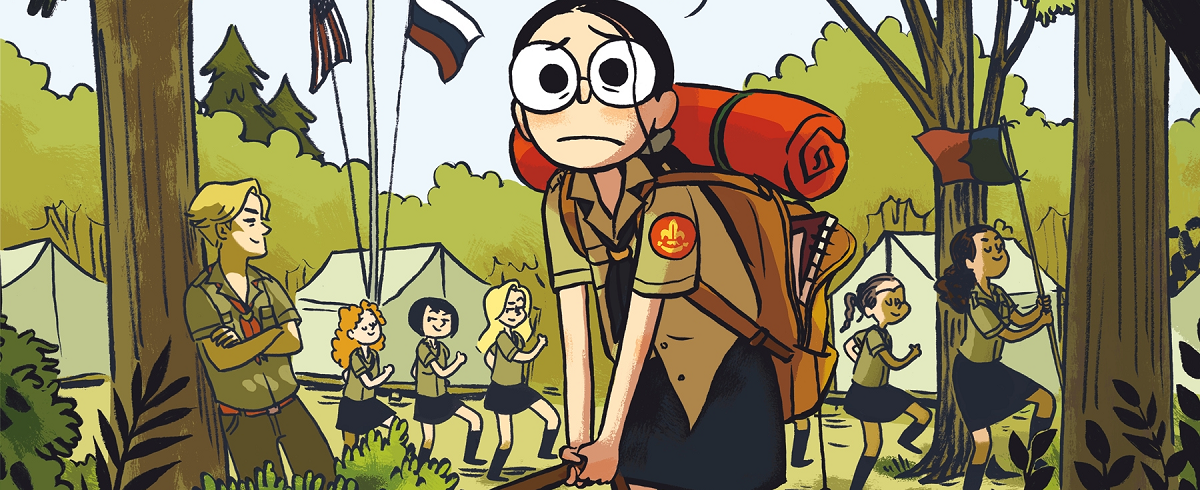
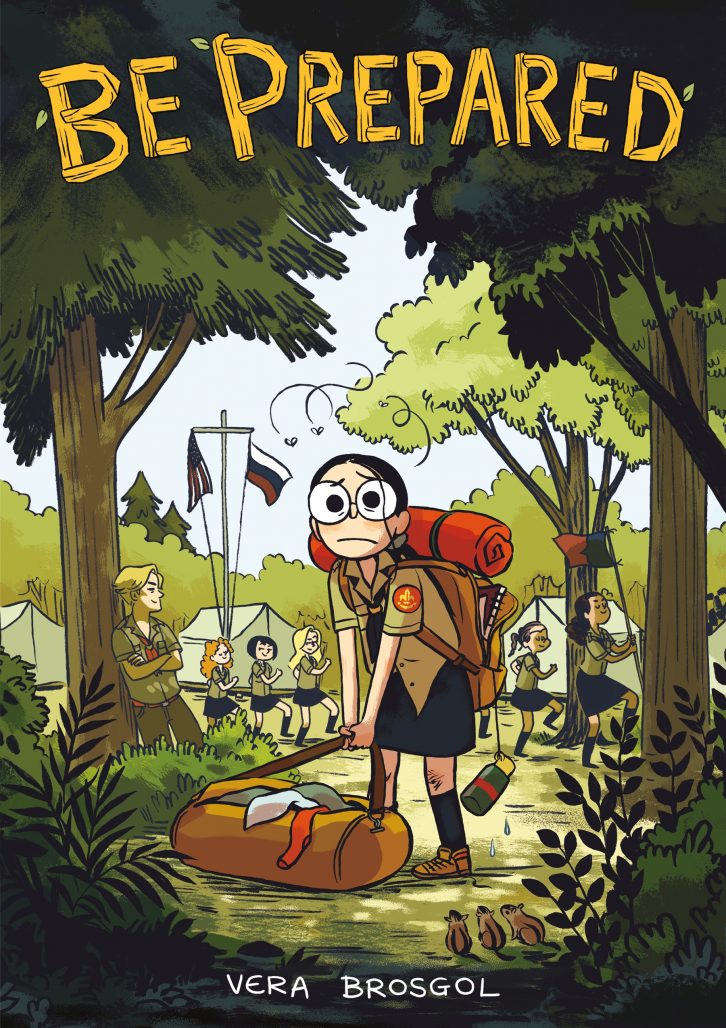
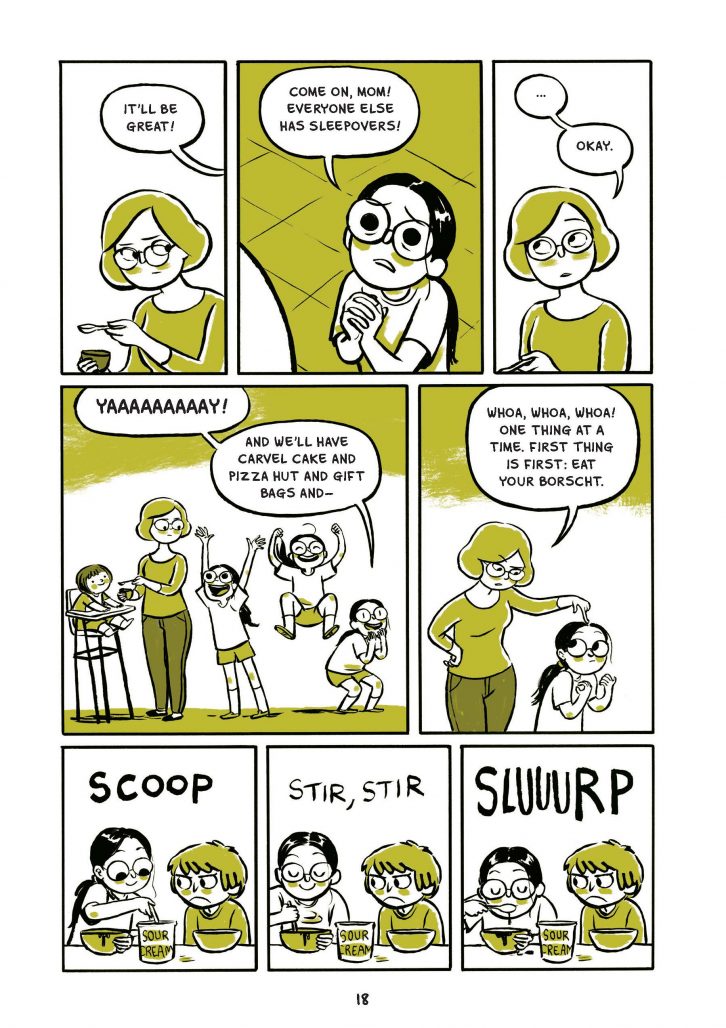
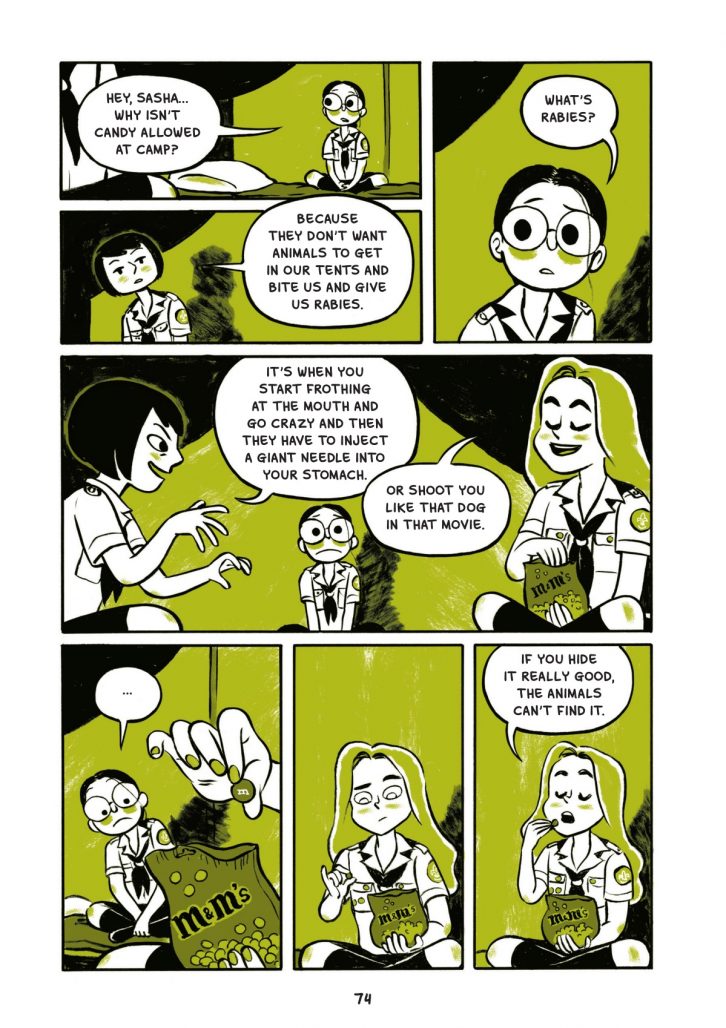
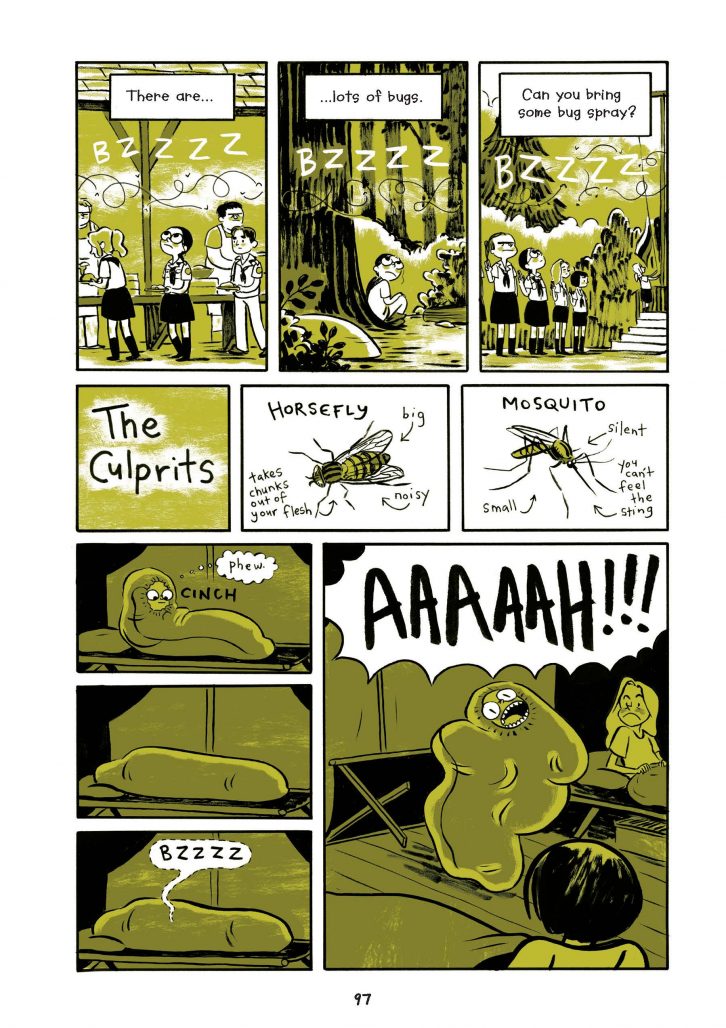



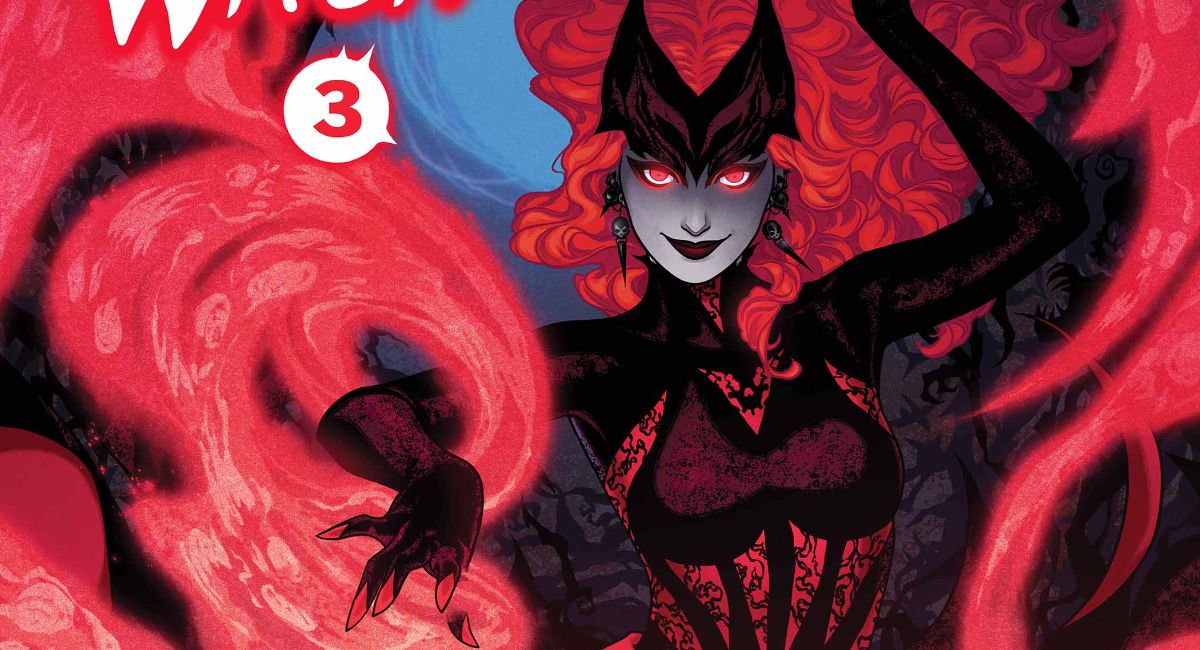


Comments are closed.